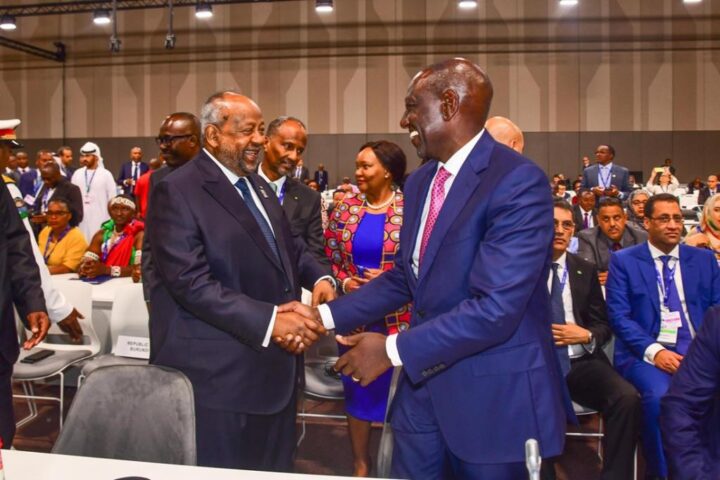Within the past four days, two major government antagonists took up the gauntlet against the Federal Government in a show of strikes for which they are well-known.
In an apparent show of determination, the Academic Staff Union of Universities (ASUU) embarked on a one-month warning strike starting February 14, a day of love.
Join our WhatsApp ChannelTruck (tanker) drivers, as a wing of the Nigeria Union of Petroleum and Natural Gas (NUPENG) workers, have also threated the FG, nay Nigerians, with strike. Perhaps, the news couldn’t be rougher for the federal government going into the new week turned sour by the news of strike.
ASUU’s latest strike is coming just over one year after it ended an eight-month long strike in 2020. As of 2022, ASUU had gone on strike for at least a combined period of 42 months since 1999. Culturally, strikes multiply in Nigeria towards election periods. But all too often, the politicians invite trouble.
Consider ASUU’s case. ASUU says it is using the strike to force the FG to honour the agreements it reached with the Union dating to 2009. Chief among the grouse of ASUU is request for renegotiation of the 2009 agreement, revitalization fund for public institutions, earned academic allowances, payment of salary arrears and the replacement of the Integrated Personnel Payroll Information System, IPPIS, with the University Transparency and Accountability System UTAS. The latest agreement was reached in 2020 to replace IPPIS with UTAS.
As it is, President Buhari, February 1, joined other religious leaders to appeal to ASUU to sheath its swords, promising, on top of failed promises, that the FG would honour its own agreements.
Many top politicians and members of the National Assembly had waded into the ASUU-FG face-off in 2020 to resolve the eight-month strike. When the FG failed to honour the promises it made at those interventions, ASUU threatened another showdown in late 2021, but was doused by yet more interventions by Buhari’s Chief of Staff, Ibrahim Gambari, Speaker of the House of Representatives, Femi Gbajabiamila, and the Minister of Labour, Chris Ngige. ASUU may have grown weary of such interventions.
In a related development, ASUU’s comrades in strikes, The Nigeria Union of Petroleum and Natural Gas workers (NUPENG), is warming up to lock the country out of petroleum supply. It has issued stern warnings to the FG that it would soon embark on strikes in protest against bad roads around the country, which have jeopardized their health, their vehicles, their jobs and their fortunes.
The petroleum tanker drivers are protesting the failure of the FG to repair 21 selected roads in accordance with agreements reached with stakeholders. The drivers were seriously angered when they alleged that senior government officials were currently diverting the N621bn provided by the Nigerian National Petroleum Company Limited for the rehabilitation of the identified federal highways. The said sum of money was approved by the FG in October of 2021 in a desperate effort to avert an impending NUPENG strike then.
Recall that critical stakeholders of NUPENG held two meetings in October 2021 with the Federal Inland Revenue Service, Federal Road Safety Corps, Federal Ministry of Works and Housing, Nigeria Association of Road Transport Owners and PTD.
According to the National Chairman of the tanker drivers, Salmon Oladiti, “These two meetings resulted into signing of communique indicating the readiness and willingness of NNPC to finance the rehabilitation of 21 critical roads at an estimated sum of N621bn through road infrastructure tax credit scheme.
It is therefore incident on failed promises that ASUU and NUPENG (through tanker drivers) have taken the strike option. The story is not far from the strike action called in 2021 by the Nigerian Association of Resident Doctors (NARD) caused mainly by nonpayment of salary arrears and insurance benefits. The strike was ended through a court order, and it was the fourth time the association ‘struck’ in less than two years.
If these two bodies carry on with their threats and actions, then Nigerians should brace up for real tough times, which may yet again test the wits of politicians and the floundering embers of a strained government – no thanks to the pandemic. As is, parents, guardians, public spirited individuals and who’s who in Nigeria have started begging ASUU and the FG to resolve the current impasse without strikes. The toll that incessant strikes continue to take on Nigeria is heartrending.
Unfortunately, many associations in Nigeria always see strike as the only option, just as the ASUU announced on the morning of February 14. We express deep concern about government’s aptitude for falling to honour agreements. Does the FG ever consider its options before entering into agreements?
One of the major reasons for calls by government for a renegotiation of the 2009 agreement was because government saw the agreement as impossible to implement. Why did its agents sign the papers? Yet, there are other agreements reached in 2020 about earned allowances, salary arrears, revitalization fund and the payment system. Government has reneged on all of these despite saying that it has remitted the sum of N52.5 billion for revitalization of structures and earned allowances to ASUU, though yet to be claimed by ASUU.
Given that ASUU is already in the trenches, the FG should clear its name immediately by beginning to implement the agreements as promised by President Buhari early in February. Need we also advise the FG to move swiftly to nip NUPENG’s angst right in the bud. If Nigerians can endure ASUU for eight months, they will surely cringe under NUPENG for even 24 hours.

















![Gender Activism An Economic Necessity In Africa [PBA Editorial]](https://www.primebusiness.africa/wp-content/uploads/2023/11/vaw-720x480.png)

Hello